
International Journal of Cartography
Scope & Guideline
Fostering Interdisciplinary Dialogue in Cartography
Introduction
Aims and Scopes
- Innovative Cartographic Methodologies:
The journal focuses on the development and application of new methodologies in cartography, including digital mapping techniques, spatial analysis, and the use of advanced technologies such as GIS and machine learning. - Interdisciplinary Approaches:
Papers often explore the intersection of cartography with other fields such as art, sociology, and environmental science, highlighting the role of maps in understanding complex socio-environmental issues. - Historical and Cultural Perspectives:
The journal includes research on historical cartography and the cultural implications of mapping practices, contributing to the understanding of how maps reflect and shape societal narratives. - Sustainable Development and Social Impact:
There is a consistent focus on the role of cartography in promoting sustainable development goals (SDGs) and addressing social issues, emphasizing the importance of maps in advocacy and community engagement. - User Interaction and Experience:
Research often investigates the relationship between users and maps, including studies on map usability, user experience, and the cognitive aspects of map interpretation.
Trending and Emerging
- Digital and Interactive Cartography:
There is a growing emphasis on digital mapping technologies and interactive cartography, including the use of augmented reality and web-based mapping platforms, reflecting the demand for more engaging and user-friendly map experiences. - Data-Driven Mapping and Visualization:
The use of big data and advanced visualization techniques is on the rise, with researchers exploring how to effectively represent complex datasets through innovative cartographic methods. - Social Cartography and Community Engagement:
Emerging studies focus on the role of cartography in social movements and community advocacy, emphasizing participatory mapping and the use of maps to address social justice issues. - Sustainability and Environmental Mapping:
Research addressing the mapping of ecological and environmental issues, including climate change and resource management, is increasingly prevalent, linking cartography to global sustainability efforts. - Neurocartography and Cognitive Mapping:
Recent interest in the cognitive aspects of map use, including how people perceive and interact with maps, signifies a trend towards understanding the psychological dimensions of cartography.
Declining or Waning
- Traditional Cartographic Techniques:
There is a noticeable decline in papers focused solely on traditional cartographic techniques, such as manual map drawing or analog methods, as the field increasingly embraces digital technologies and automated processes. - Static Maps:
Research on static, paper-based maps is becoming less prominent, with more emphasis on interactive and dynamic mapping solutions that cater to the evolving needs of users in a digital age. - Historical Maps without Contemporary Context:
While historical analysis remains important, there is a waning interest in studies that do not connect historical maps to contemporary issues or technological advancements, as the field shifts towards relevance and application. - Geographic Information Systems (GIS) Basics:
Basic GIS methodologies are increasingly viewed as foundational knowledge, leading to a decline in papers that cover introductory GIS topics without new insights or applications. - Purely Theoretical Cartography:
There is a trend away from purely theoretical discussions in cartography that lack empirical research or practical applications, as the journal prioritizes studies with tangible outcomes.
Similar Journals
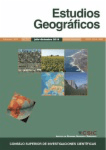
Estudios Geograficos
Shaping Insights, Influencing PoliciesEstudios Geograficos, a prominent journal published by the CONSEJO SUPERIOR INVESTIGACIONES CIENTIFICAS-CSIC in Spain, serves as a vital platform for advancing the fields of geography and earth-surface processes. With an ISSN of 0014-1496 and E-ISSN of 1988-8546, the journal has been committed to Open Access since 1996, ensuring that its valuable research is accessible to a global audience. Recognized as a Q3 journal in both Earth-Surface Processes and Geography, Planning and Development, it plays a crucial role in shaping understanding and policy related to our planet. As of 2023, it holds a respectable rank of 562nd in Social Sciences Geography and maintains a percentile standing, reflecting its significance within the academic community. Covering a diverse range of topics, Estudios Geograficos aims to foster scholarly dialogue and disseminate innovative interdisciplinary findings, providing researchers, professionals, and students with critical insights and tools to address contemporary geographic challenges.
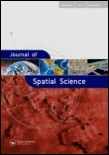
Journal of Spatial Science
Advancing Interdisciplinary Insights in Spatial ScienceThe Journal of Spatial Science, published by Taylor & Francis Ltd, serves as a prominent platform for the dissemination of research in the interdisciplinary fields of geography, atmospheric science, and energy. With an ISSN of 1449-8596 and an E-ISSN of 1836-5655, this journal has established itself as a vital resource since its inception in 2004, boasting an impressive convergence period extending to 2024. Recognized in the Q3 quartile for Atmospheric Science and Energy (miscellaneous), and achieving a Q2 classification in Geography, Planning and Development in 2023, the journal not only reflects the evolving complexities of spatial science but also underscores its increasing relevance in addressing contemporary global challenges. The journal holds a commendable position in Scopus rankings, with notable placements in various categories, further highlighting its academic significance. Researchers, professionals, and students are encouraged to engage with the rich content offered, as the Journal of Spatial Science remains committed to advancing knowledge and fostering discussions pertinent to spatial analysis and its applications.

Revue Internationale de Geomatique
Advancing the Frontiers of Geomatics ResearchRevue Internationale de Geomatique (ISSN: 1260-5875, E-ISSN: 2116-7060) is a prestigious journal published by TECH SCIENCE PRESS, dedicated to advancing the field of geomatics. This journal serves as a vital platform for disseminating significant research findings, cutting-edge methodologies, and innovative applications within the realm of spatial data and technology. With an emphasis on interdisciplinary studies, it fosters collaboration among researchers, professionals, and students across various domains, including environmental science, urban planning, and geographic information systems (GIS). Although not an open-access journal, Revue Internationale de Geomatique maintains a rigorous peer-review process ensuring the publication of high-quality articles that contribute to the evolving landscape of geomatics. Given its relevance and commitment to scholarly excellence, this journal is a crucial resource for advancing knowledge and practices in the ever-growing field of spatial information science.
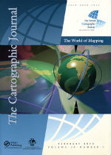
CARTOGRAPHIC JOURNAL
Exploring the Boundaries of Geographic KnowledgeThe Cartographic Journal, published by Taylor & Francis Ltd, stands at the forefront of the field of cartography and geographic information systems. Established in 1964, this quarterly journal has been a pivotal platform, fostering academic discourse and research in Earth-Surface Processes, evidenced by its impressive Q2 ranking and a Scopus status reflecting its relevance in the discipline. With an ISSN of 0008-7041 and an E-ISSN of 1743-2774, the journal circulates a wealth of insights and innovations essential for researchers, professionals, and students devoted to understanding the complexities of geographic representations. While it maintains a traditional subscription model, its integrity and contributions are well-recognized in the UK and globally, supported by a mission to enhance cartographic education and stimulate advancements in spatial data analysis. As it converges its focus through 2024, The Cartographic Journal continues to illuminate the evolving landscapes of geography and cartography, making it an indispensable resource for anyone invested in these dynamic fields.
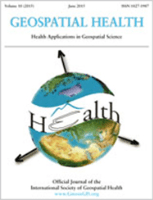
Geospatial Health
Advancing Research at the Crossroads of Health and Space.Geospatial Health is an esteemed academic journal dedicated to the intersection of geography, health policy, and social sciences, published by UNIV NAPLES FEDERICO II. Since its inception in 2006, this Open Access journal has been pivotal in disseminating valuable research that examines health-related issues through a geographical lens. With an impact factor that places it in the Q3 category across multiple disciplines including Geography, Health Policy, and Medicine, it serves as a vital resource for researchers, practitioners, and scholars alike. Located in Naples, Italy, the journal aims to foster interdisciplinary collaboration and provide insights that can influence policy and practice in health and environmental sectors. With its commitment to accessibility and high-quality research, Geospatial Health continues to enrich the fields it represents, inviting contributions that explore the intricate dynamics between health and spatial determinants.

Documents d Analisi Geografica
Unveiling the Dynamics of Our Planet through Open AccessDocuments d'Anàlisi Geogràfica is a distinguished academic journal published by Universitat Autònoma de Barcelona, focusing on the fields of geography, planning, and earth-surface processes since its inception in 1988. With an Open Access policy implemented in 2012, the journal aims to facilitate the widespread dissemination of geographical research and insights, accessible to a global audience. Currently ranked in Q3 for both Earth-Surface Processes and Geography, Planning and Development categories, it serves as a vital platform for researchers, practitioners, and students to share their findings and enhance knowledge in these critical fields. The journal is indexed in Scopus, where it stands at rank #470 in Social Sciences and #106 in Earth and Planetary Sciences, reflecting its growing impact in relevant academic communities. Based in Barcelona, Spain, Documents d'Anàlisi Geogràfica continues to contribute substantially to geographical scholarship by exploring contemporary issues and advancements in a rapidly evolving world.

Navigator-Subsidios para a Historia Maritima do Brasil
Unlocking the Depths of Brazil's Nautical HeritageNavigating maritime history in Brazil, the journal Navigador-Subsidios para a Historia Maritima do Brasil serves as a pivotal platform for scholars, researchers, and enthusiasts alike. Published by the Ministerio Marinha, Serv Documentacao Geral Marinha, this esteemed journal has been offering Open Access content since 2005, ensuring that valuable insights into Brazil's rich maritime heritage are accessible to a global audience. Featuring a wide range of scholarly articles, the journal addresses various aspects of maritime history, including naval exploration, trade routes, and the cultural impact of seafaring on Brazilian society. By continually contributing to academic discourse, Navigador plays an essential role in preserving and promoting Brazilian maritime heritage, appealing to professionals in history, maritime studies, and cultural research.

CyberGeo-European Journal of Geography
Pioneering Critical Insights in European GeographyCyberGeo-European Journal of Geography, published by CYBERGEO, is a leading open-access journal that has been at the forefront of geographical research since its inception in 1996. With a dedicated focus on the multifaceted dimensions of geography, the journal aims to disseminate innovative and critical insights into geographical phenomena in Europe and beyond. The journal has established itself in the academic community, currently holding the Q3 quartile ranking in the Social Sciences (miscellaneous) category for 2023 and recognized within Scopus as #428 out of 604, placing it in the 29th percentile. CyberGeo publishes original research articles, thematic issues, and reviews that contribute to the advancement of geographical knowledge, making it an essential resource for researchers, professionals, and students alike. Situated in Paris, France, the journal embraces a truly international perspective and invites contributions that stimulate scholarly debate and further the understanding of spatial dynamics. By providing open access to its content, CyberGeo ensures that its research is accessible to a global audience, promoting knowledge sharing and collaborative exploration in the field of geography.

SaberEs
Bridging theory and practice in the realm of economic research.SaberEs is an esteemed open-access journal dedicated to advancing knowledge in the fields of economics and statistics. Published by the Universidad Nacional de Rosario, Facultad de Ciencias Económicas y Estadística, this journal offers a platform for researchers, professionals, and students to disseminate their findings and engage in scholarly discourse. Since its inception in 2009, SaberEs has made significant contributions to the academic community by promoting rigorous research and critical analysis. With its commitment to accessibility, the journal ensures that its articles are freely available to a global audience, emphasizing the importance of shared knowledge in fostering progress within economic and statistical sciences. Researchers looking to explore innovative methodologies and application-focused studies will find SaberEs to be an invaluable resource in their academic endeavors.
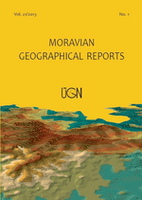
Moravian Geographical Reports
Connecting Geographical Insights with Global ImpactWelcome to the Moravian Geographical Reports, an esteemed Open Access journal published by SCIENDO, dedicated to advancing the fields of Earth and Planetary Sciences as well as Geography, Planning and Development. Established in 1993, this journal has steadily built a reputation for disseminating high-quality research, evidenced by its 2023 Q2 ranking in both relevant categories and an impressive Scopus percentile ranking of 72. With a dedicated editorial board and an expanding global readership, the Moravian Geographical Reports serves as a vital platform for researchers, professionals, and students alike, fostering dialogue and collaboration across various dimensions of geographical and environmental studies. Since its shift to Open Access in 2013, it has significantly enhanced the accessibility and reach of its published works, making crucial research findings available to a broader audience. The journal continues to thrive as a significant contributor to the geographical and earth sciences discourse during its converged years from 1993 to 2024.